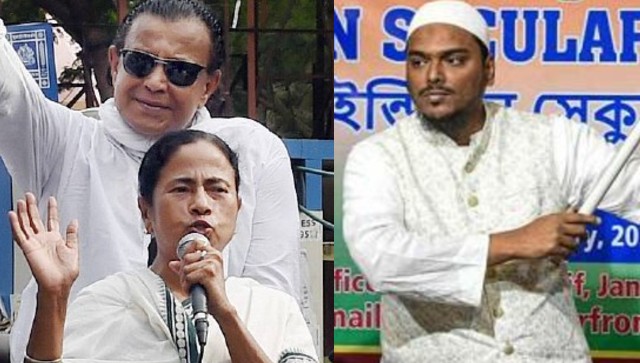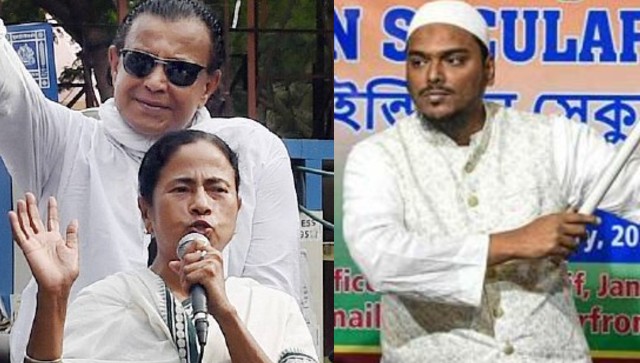The Supreme Court, in its order of 5 July 2011, finally brought to an end a disgraceful chapter of state opportunism, abdication of responsibility and breakdown: the unprincipled, state-backed Salwa Judum in Chhattisgarh.
But in doing so, the court has also tended to collapse all issues relating to Salwa Judum and the recruitment and use of Special Police Officers (SPOs) into a single incoherent mass, producing a result that throws the baby out with the bathwater. It has, moreover, adopted one among polarised positions that feed, rather than help resolve, the conflict.
Sweeping considerations of ideology, rather than of law, fact, or objective conditions prevalent, inform much of the court’s arguments. A flawed, partisan, socio-economic theory, devoid of any reference to resources or capacities and capabilities of delivery, is read into the constitution, and becomes the basis for much of the court’s utopian rampage into matters of policy that lie squarely in the realm of the executive. Of which, more later.
It is, of course, the case that Salwa Judum, in its earliest manifestations, was a spontaneous articulation of rising anger against arbitrary Maoist actions and diktats. Within a month, however, it had been transformed by unscrupulous elements within the political and police establishment into a state-backed armed movement against the Maoists. The weapons given to the restive tribals were the antiquated surpluses from police armouries.
The areas in which the poor, barely trained, and ill-equipped Salwa Judum cadres were operating had long been dominated by the Maoists, and the presence of security forces there was minimal and ineffectual. Their dominance being challenged for the first time in their heartland in Bastar, the Maoists retaliated with predictable and overwhelming violence.
Instead of sending in regular forces to protect the hapless tribals, the state sought to exploit Maoist atrocities in its propaganda campaigns. Eventually, when the bloodshed – including at least some cases of excesses by Salwa Judum cadres – went beyond a point, the state simply dragged a large population of over 65,000 tribals out of their villages and into appallingly provisioned ‘relief camps’.
Under rising public pressure and with the intervention of the judiciary, the state sought to reinvent the Salwa Judum by appointing a proportion of the armed cadres as Special Police Officers, and organising them into units, unofficially referred to as Koya Commandos. They were purportedly under regular police command, and they were sent out to hunt and kill alleged ‘Maoists’, again, in areas where the regular security forces had little presence or capability.
This was utterly unconscionable, both because it put these poor and ignorant tribals at extraordinary risk, and because it allowed armed groups to operate in areas and in circumstances where there was little accountability. Some excesses inevitably resulted, even as fatalities among SPOs rose disproportionately.
Chhattishgarh has repeatedly put forward the argument that armed SPOs have been used in many other theatres of insurgency – prominently including Punjab, Jammu & Kashmir and Tripura. This is, at best, disingenuous. The SPOs in these states were used as auxiliary Forces, ordinarily for static duties – such as village defence or the manning of nakas (checkpoints) – crucially in areas of clear security forces dominance.
SPOs were an auxiliary or secondary resource, by definition inferior to the regular forces, and restricted to secondary tasks, in order to free the better trained and equipped regulars for the more demanding work of counter-insurgency. Some SPOs were also sent out with regular forces for counter-insurgency duties, essentially to bulk up regular units, but always as a small component of such units, which were under the clear command of, and dominated by, regular forces.
Chhattisgarh, however, stood this model on its head, using Salwa Judum irregulars and SPOs as an advance guard, a spearhead, to fight the Maoists, even as better trained and equipped regular forces were held back, or allowed to abdicate their responsibilities. With nearly 15,000 Chhattisgarh police personnel and officers already trained at the Counter-Insurgency and Jungle Warfare School at Kanker, even today the total strength of state police personnel deployed for offensive counter-insurgency operations in Chhattisgarh is under 3,000.
There has been a clear defalcation of duties here, and a disproportionate shifting of the burden of counter-insurgency operations onto the ill-equipped and poorly trained SPOs and irregulars. The Supreme Court is right to have brought this scandalous arrangement to an end.
Regrettably, in its extensive order, the court has veered far afield in areas of policy and ideology. “The problem rests”, the court observes, “in the amoral political economy that the state endorses, and the resultant politics that it necessarily spawns.”
And again, “On the one hand, the state subsidises the private sector, giving it tax break after tax break, while simultaneously citing lack of revenues as the primary reason for not fulfilling its obligations to provide adequate cover to the poor through social welfare measures.” The state, the court insists, pursues “socio-economic policies that cause vast disaffection amongst the poor, creating conditions of violent politics…”
The support for these sweeping observations comes not from an analysis of the real situation on the ground, or the record of the state’s allocations for ‘tax breaks’ or for poverty alleviation and public welfare; it comes, rather, from selective citations extracted from just a few notoriously ideologically loaded writings. These, and not any constitutional considerations, then become the basis for comprehensive prescriptions of how the state is required to respond to insurgencies and political violence – issues of policy and practice that lie essentially within the purview of an accountable and elected executive, rather than of judicial determination.
Despite the weight of its politically correct pretenses, interestingly, the court’s order displays an extraordinary contempt for persons without the advantages of a middle class education and background. SPOs, with schooling up to the 5th class or less, are thus deemed incapable of understanding the imperatives of the law, the significance of human rights, of being trained to function professionally, or to act with restraint and decency. Motivated by personal histories of loss and experiences of Maoist atrocity, they are impelled by hatred and a desire for revenge.
The ‘regular’ policeman, or paramilitary trooper, on the other hand, variously with his 8th class or intermediate schooling, we must believe, has mastered the constitution and law, is deeply seeped in the culture of human rights, and goes into the jungle to confront the Maoists with the milk of human kindness flowing through his veins.
This is just arrant prejudice. It ignores the reality that outside forces, unfamiliar with local cultures and conditions, irrespective of their education and training, are inclined to be more indiscriminate, and often brutal, in their use of force, than locals. In long-isolated tribal areas, moreover, the local is indispensible – and is seldom well educated.
It is sheer delusion to believe that highly educated tribals will abruptly appear to back up regular forces with their local knowledge; or that outside forces will quickly acquire such knowledge for effective and discriminating counter-insurgency operations. In restricting the use of SPOs to traffic regulation and disaster relief, the court acts both arbitrarily, in contravention of existing state and national legislation, and unrealistically, ignoring operational realities and imperatives.
There are a number of other difficulties with the present order, and it is likely that the inevitable review will correct its excesses to restore a measure of balance and realism, both to the broader approach to counter-insurgency, as well as to the specifics of the recruitment, use, training, command and control, of SPOs in the context of widespread conflict.


)




)
)
)
)
)
)